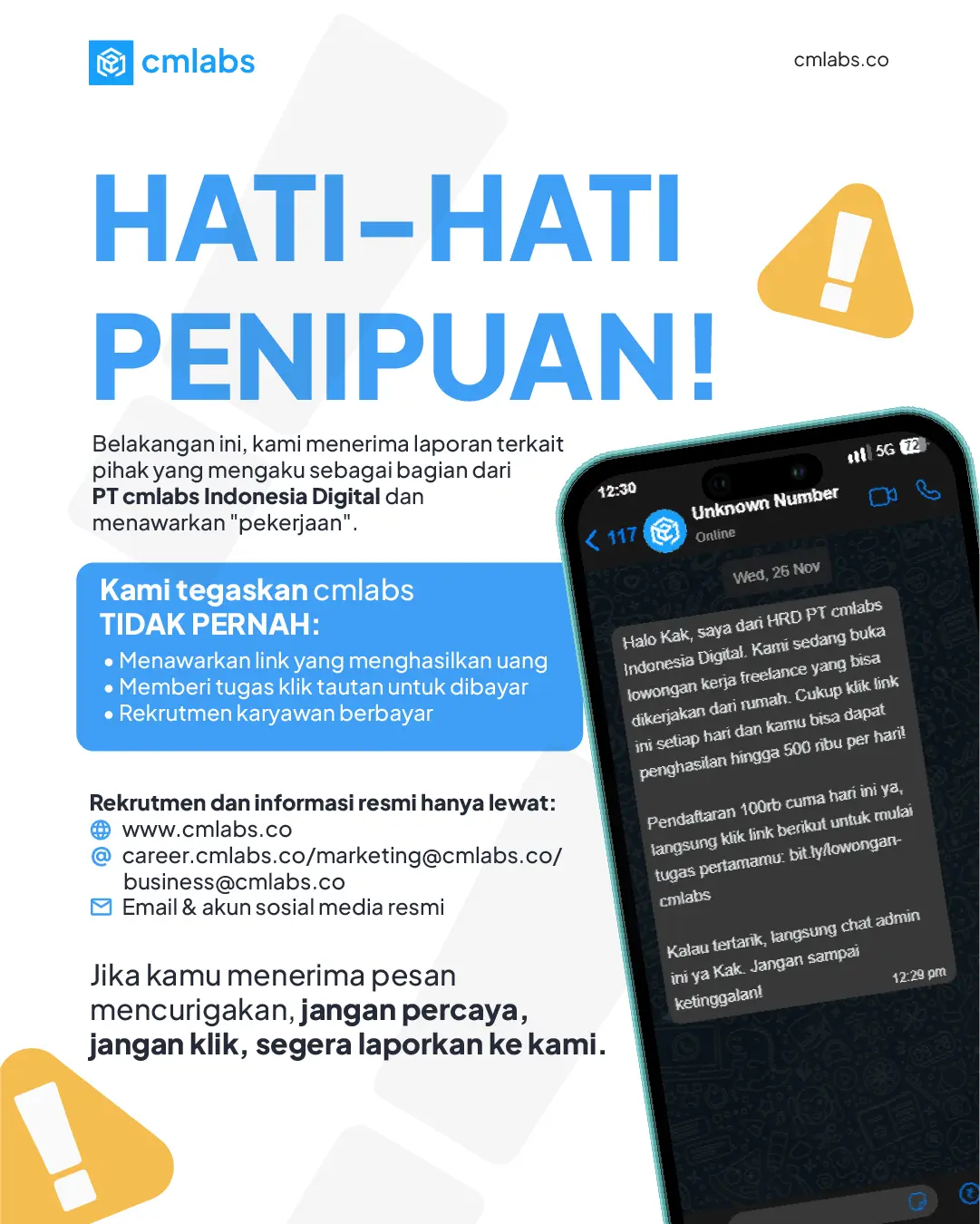cmlabs Official Writing Guideline for The US Region
Written by cmlabs | Last updated at Jun 13, 2024
NO. 00280/PP/CID/VI/2024
1. Language Aspects
A. Dominant Dialects
- According to the US government, there is no official language in the United States. English is the predominant language used across the country, and certain states choose to recognize it as their official language.
- There are regional variations within American English itself, but it's the standard used in education, government, and media.
B. Slang
- Slang usage will depend on the niche, most US formal publishing does not use slang.
- In some informal writing, slang might be used.
- Example: Buck, Broke, Fed Up, How Are You - A way to say "hello."
- Slang glossary: International Student Handbook American Slang | Salisbury University
C. Common Expressions
Frequently used phrases regularly appear in both written and spoken English. Below are a few examples:
Idioms | Meaning | Usage |
| A blessing in disguise | A good thing that seemed bad at first | as part of a sentence
|
| A dime a dozen | Something common | as part of a sentence |
| Beat around the bush | Avoid saying what you mean, usually because it is uncomfortable | as part of a sentence |
| Break a leg | Good luck | By itself |
| Call it a day | Stop working on something | as part of a sentence |
| Hit the sack | Go to sleep | as part of a sentence |
| Pull yourself together | Calm down | By itself |
| The best of both worlds | Ideal situation | By itself |
| Under the weather | sick | as part of a sentence |
D. Communication Styles
- Direct and use simple sentences to support writing comprehension and to avoid misunderstanding.
- In the United States, they adhere to stricter conventions for written communication compared to spoken language. While verbal errors (like saying "should of" instead of "should have") and fillers (such as "uh," "um," or "you know") are often accepted in speech, they are generally not tolerated in writing.
E. Word Choices
There are some word choices that differentiate British English and American English. When writing for an American website, here are some preferred words:
- Temperature is in Fahrenheit degrees.
- Measurement units are in miles, feet, yards, and inches.
- Use “sidewalk” (instead of “pavement”), “truck” (not “lorry”), “apartment” (not “flat”), “gasoline” (not “petrol”), “flashlight” (not “torch”), “soccer” (not “football”), and “vacation” (not “holiday”).
2. Technical Aspects
A. Grammar and Spelling
Write for all readers. Ensure that the content is easily comprehensible for individuals of varying reading levels. To achieve this, organize the article's information in a clear hierarchy using headings (H1, H2, H3).
In American English, prioritize the active voice over the passive voice whenever feasible. For instance:
- Yes: cmlabs use SEO to boost their website performance.
- No: SEO is used by cmlabs to boost their website performance.
Rules for Writing Acronyms and Abbreviations
Spell the abbreviation out the first time you mention it. Then use the short version for all other references.
- First use: Search Engine Optimization (SEO)
- Second use: SEO
Rules for Writing Numbers
Here are some examples of writing rules for numbers on American websites:
- Currency: Symbol followed by value ($70)
- Date: Month/Day/Year style (08/15/2024 is August 15, 2024) and Americans tend to use slashes or dashes between the numbers, not periods
- Telephone numbers: Use dashes without spaces between numbers. (+1-404-122-3344)
- Times: Use lowercase a.m. and p.m. and always use periods. (10:30 a.m.)
Rules for Writing Names
- In US English, both the first and last names of a person are capitalized.
- Titles like Mr., Mrs., Ms., and Dr. all take periods after them.
Punctuation
- Quotes: American English uses double quotes (“x”), and puts the punctuation inside the final double quote: “x.”
- Comma: use Oxford comma (This tool helps the website to generate, analyze, and rate their performance)
- Dashes: Use a hyphen (-) without spaces on either side (real-time).
3. Cultural Aspects
A. Social Values
The United States is known for its diversity, and promoting inclusivity is of utmost importance. Content should demonstrate respect for individuals regardless of their race, ethnicity, gender, sexual orientation, religion, or socioeconomic background. (back to the clients)
B. Cultural Sensitivities
- Gender Sensitivities: Be aware of gender inclusivity and avoid language that reinforces gender stereotypes or excludes non-binary or transgender individuals. Use gender-neutral language where appropriate.
- Cultural References: Take into account the cultural background of your audience when incorporating references, idioms, or humor. What might be well-understood or amusing in one culture could be misinterpreted or offensive in another.
- Historical Sensitivities: Recognize the historical backdrop of specific events or subjects, particularly those concerning sensitive matters like slavery, colonization, discrimination, or genocide. Address these topics with care and precision.
4. Prohibited Content
Based on many resources, here are some of the prohibited content on the US website:
- Gambling and games.
- Child pornography.
- Defamation.
- Incitement to Violence.
- Threats.
- Alcohol.
- Sexual content.
- Adult content.
- Terrorist content.
- Weapon.
For more information, you can refer to the Google Guidelines.
5. Additional Information
- Health: Health Literacy Online--Write Actionable Content
- Finance: Writing Style Guidelines
